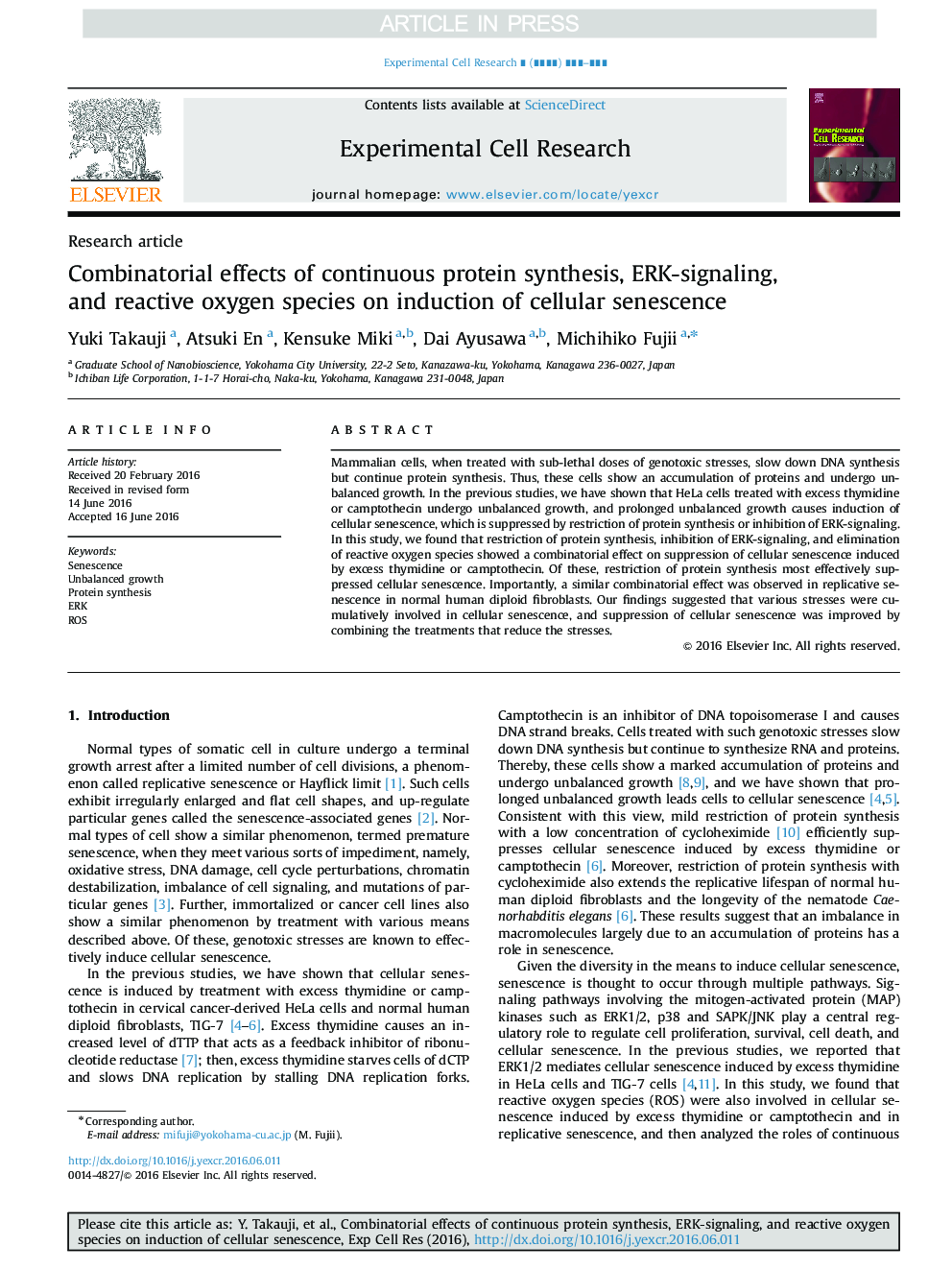| Article ID | Journal | Published Year | Pages | File Type |
|---|---|---|---|---|
| 10903715 | Experimental Cell Research | 2016 | 8 Pages |
Abstract
Mammalian cells, when treated with sub-lethal doses of genotoxic stresses, slow down DNA synthesis but continue protein synthesis. Thus, these cells show an accumulation of proteins and undergo unbalanced growth. In the previous studies, we have shown that HeLa cells treated with excess thymidine or camptothecin undergo unbalanced growth, and prolonged unbalanced growth causes induction of cellular senescence, which is suppressed by restriction of protein synthesis or inhibition of ERK-signaling. In this study, we found that restriction of protein synthesis, inhibition of ERK-signaling, and elimination of reactive oxygen species showed a combinatorial effect on suppression of cellular senescence induced by excess thymidine or camptothecin. Of these, restriction of protein synthesis most effectively suppressed cellular senescence. Importantly, a similar combinatorial effect was observed in replicative senescence in normal human diploid fibroblasts. Our findings suggested that various stresses were cumulatively involved in cellular senescence, and suppression of cellular senescence was improved by combining the treatments that reduce the stresses.
Related Topics
Life Sciences
Biochemistry, Genetics and Molecular Biology
Cancer Research
Authors
Yuki Takauji, Atsuki En, Kensuke Miki, Dai Ayusawa, Michihiko Fujii,
